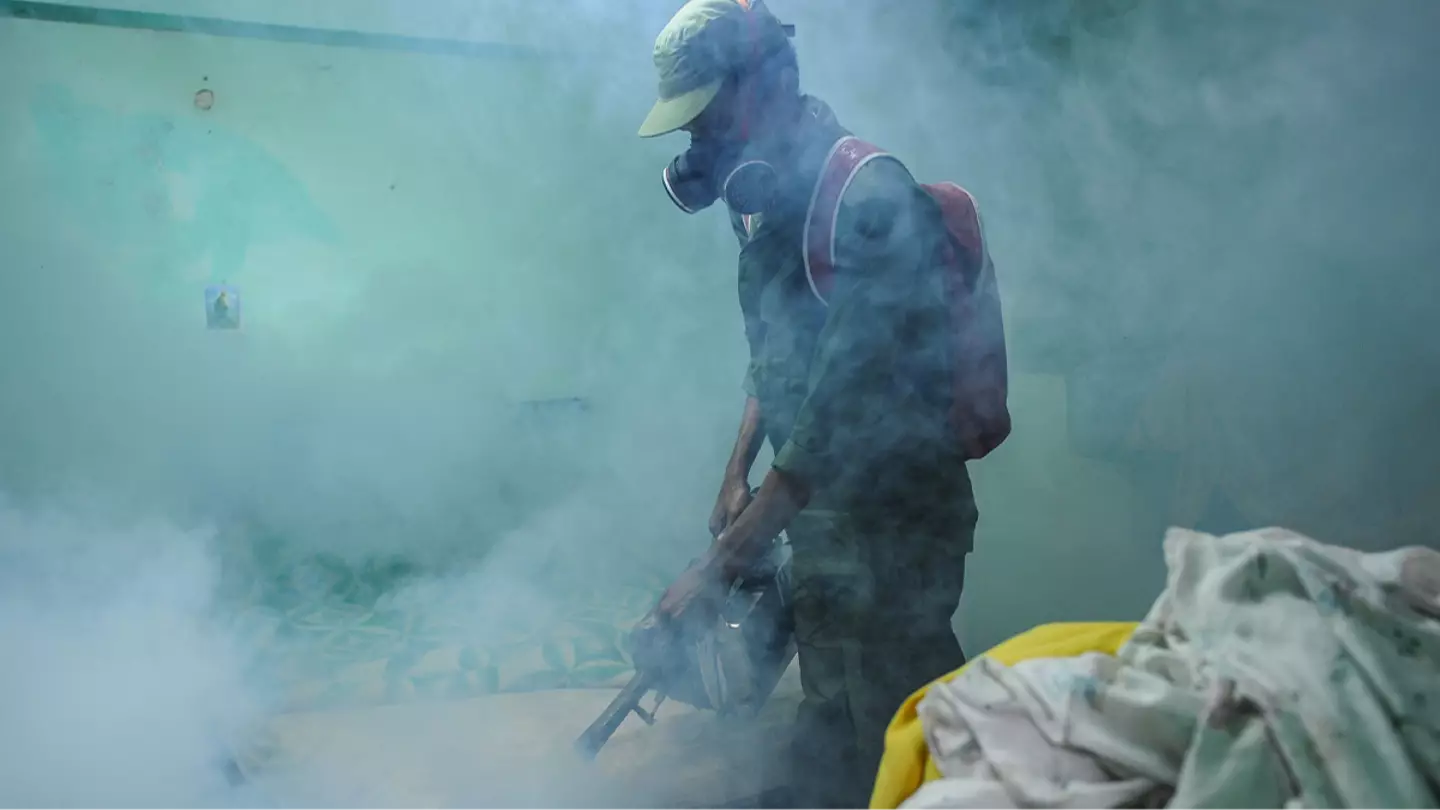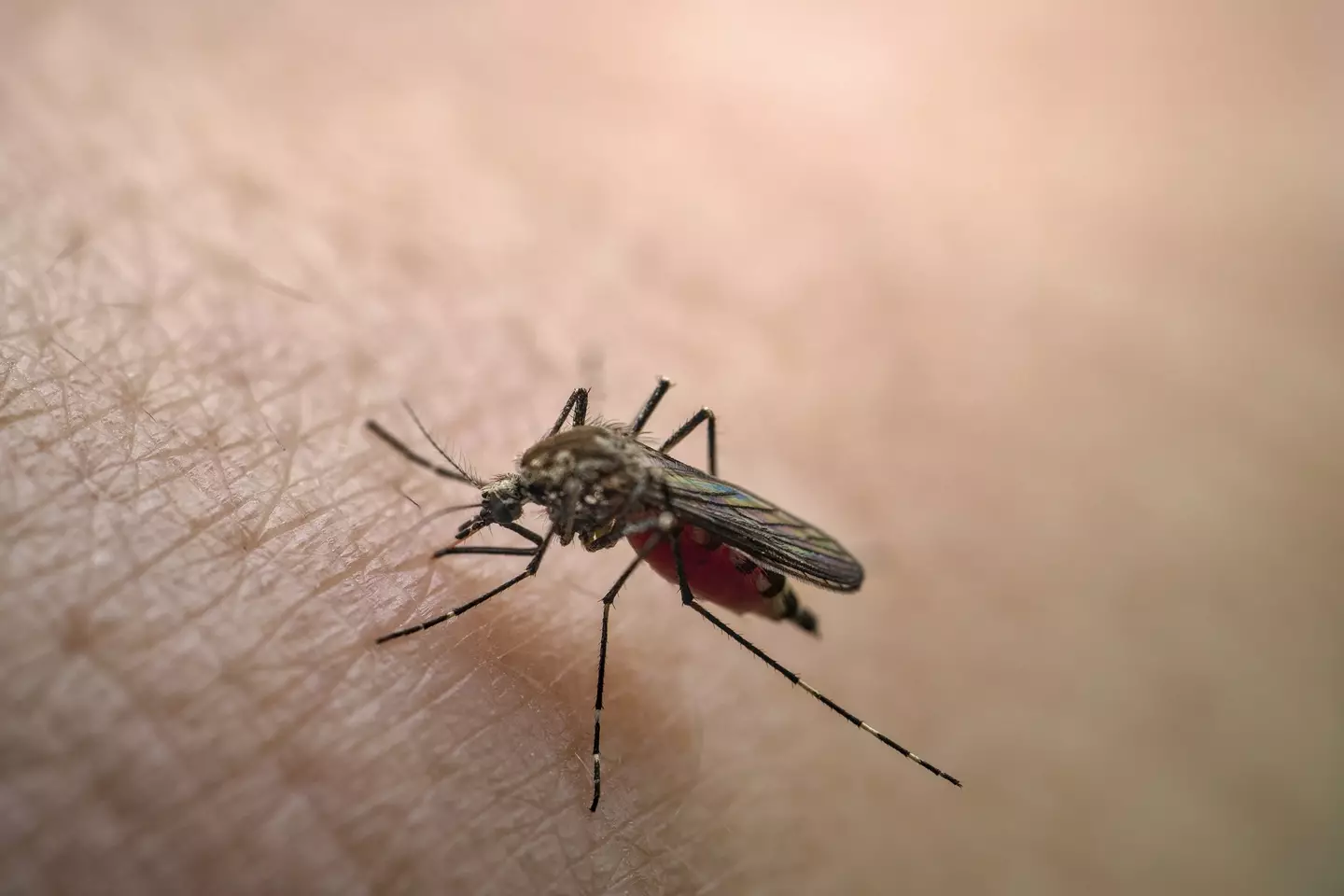
A researcher who models the spread of diseases has explained how likely it is that the chikungunya virus will result in another pandemic.
I don't need to remind anyone of the chaos and shock that was 2020, when the Covid-19 virus spread rapidly across borders and resulted in lockdowns across the globe.
But with more than 7,000 cases of a different virus, chikungunya, reported in a matter of weeks in China, it's easy to understand why people might start fearing that we're heading straight for another pandemic.
That fear is only fuelled by the news that China has brought back some of its Covid-era measures to help tackle rising chikungunya cases, with Bloomberg reporting that authorities are reinstating mass testing and undertaking community-level disinfection as part of their approach.
Advert

What is the chikungunya virus?
Chikungunya is a virus which is transmitted to humans by infected mosquitoes, resulting in symptoms, including fever and severe joint pain.
Unlike Covid-19, which could spread from person to person, you cannot catch chikungunya if you are in contact with someone with the virus. Instead, you can only catch the disease if you are bitten by an infected mosquito, which may be found in areas such as standing water.
Due to this method of transmission, large outbreaks and sporadic cases of the virus are reported mostly in the Americas, Asia and Africa, the World Health Organization explains, though there are occasional smaller outbreaks in Europe.
Why has the amount of chikungunya cases increased?
Alex Kaye, a research fellow at England's Warwick University, spoke to UNILAD about the virus and explained why, if it is only spread from mosquitos, there has suddenly been a rise in cases in recent weeks.
The researcher expressed belief that this increase is a result of both warm weather and the heavy rain and flooding which is currently occurring throughout China, leading to an increase in mosquito numbers and, consequently, more chikungunya transmission.

How likely is it that there will be a chikungunya pandemic?
While there has been a rise in chikungunya cases, Kaye, who specializes in using mathematics to model the spread of vector-borne diseases (transmitted through the bites of blood-feeding arthropods like mosquitoes), said it is 'highly unlikely' that we would see a chikungunya pandemic.
The reason for this is because the virus is 'geographically constrained by the extent of its vector, the Aedes mosquito'.
Kaye explained: "Chikungunya is most commonly spread by the Aedes aegypti and Aedes albopictus species of mosquitoes. These mosquitoes can only be found in areas with certain climatic conditions. The mosquitoes are unable to regulate their body temperature, and so they require a fairly warm environment to thrive in.
"Additionally, they breed in standing water and so periods of higher rainfall can provide an excellent environment for the mosquitoes."
The researcher continued: "With favourable climatic conditions in locations where chikungunya is already endemic (for example, in parts of Africa and Asia) it is possible that outbreaks, such as the current one in China, will occur.
"However, without suitable conditions for the vectors to breed in outside of these endemic areas, outbreaks are unlikely. There is evidence that chikungunya is spreading further north and south due to climate change, for example there was a fairly large outbreak (around 400 cases) in the Lazio region of Italy in 2017. This was likely due to a particularly favorable summer for the mosquito and outbreaks as far north as this are rare."
Kaye said there has previously been reports of locally acquired cases in the US, and noted that 'because climate change is slowly providing a more suitable environment for the mosquito in the USA, reports of locally acquired infections may increase'.
However, he added: "These outbreaks will likely consist of only a handful of cases, nothing resembling the current outbreak in China."
Topics: China, Coronavirus, Health, World News, Chikungunya virus